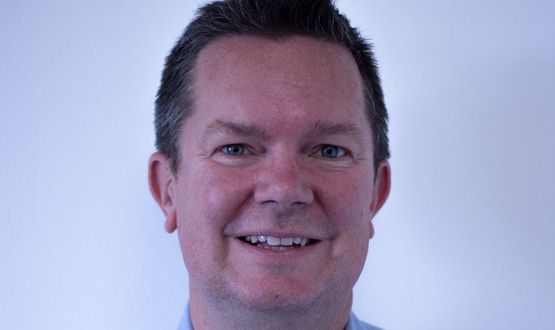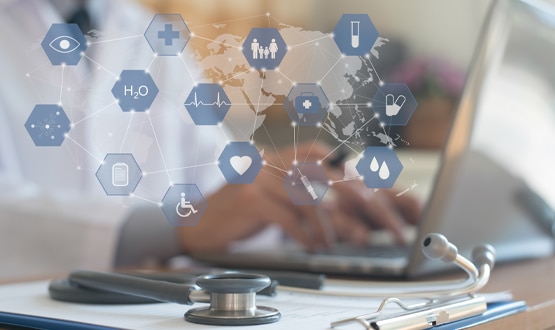Technology must enhance, not detract from, clinicians’ interactions with patients
- 3 April 2024

The NHS needs to prioritise the delivery of agile, intuitive systems that enable clinicians to focus on patients, not technology, writes Epro’s Chandu Wickramarachchi
Technology investment is a vital component in the evolution of the NHS but having achieved the core objective of joined-up patient records, it is now essential to take a different approach to building and designing systems. Information robustness and completeness are important but in an incredibly pressured environment, timeliness is key.
With unprecedented demands on emergency departments (EDs) and enormous backlogs in elective care, clinicians should not be spending upwards of 30% of their time updating records. It is damaging morale and impacting patient care.
The priority for any clinician must be patient-facing time. From collecting history to making a physical examination, this time is invaluable. Indeed, it can be the determining factor behind the right diagnosis or treatment decision. The time spent interacting with technology should enhance – not detract from – that clinical interaction.
The NHS needs to prioritise the delivery of agile, intuitive systems that enable clinicians to focus on patients, not technology, improving their ability to communicate and, as a result, the quality of patient care.
System overload
For a clinician in ED, an immediate view of a patient’s history, medications and allergies, as well as notes from ambulance crews, is hugely empowering. And yet, the process of information collection, access and recording has become a significant barrier to the delivery of timely and effective care. It is too onerous, too time-consuming and, too often, takes the clinician away from direct patient interaction.
A 2022 paper published in the Journal of Medical Systems stated that: “Clinicians reported spending a significant amount of time documenting information in the EHR, with estimates ranging from 20 minutes to 49 minutes per patient encounter. This time spent on documentation was perceived to detract from direct patient care time and contribute to clinician burnout”. In the same year, the National Audit Office also reported concerns about documentation burden contributing to 30% of a clinical shift being spent on the EHR, compromising effective time spent on direct patient interaction and potentially patient safety, alongside staff wellbeing.
The issue is not simply less time with patients, it is the overall impact on clinicians’ ability to communicate effectively, something that underpins excellent clinical care.
Compromised care
The focus of system development within health systems globally has, understandably, been on reducing risk and creating systems that impose strong control over the clinical process. The inevitable side effect, however, is that the burden of collecting as much patient information as possible (often to support a billing model that is not relevant within the NHS) and the need to adhere to rigid workflows has created a lack of flexibility that is contributing to clinician overload. These monolithic EHRs have been designed with good intentions, but there are morale-damaging implications for both clinicians and administrative staff which affect patient care.
Members of the public may not be aware of this counter-productive force playing out behind-the-scenes. Patients waiting in the packed ED will have zero idea that a clinician is reviewing their record, juggling for a space at a crowded PC to check history and current health emergency. After being seen and assessed, the patient will be left alone in a cubicle while the clinician is compelled to, again, find an available PC to update records, request tests or seek a referral.
The fact that the clinician will inevitably be distracted by incoming ECGs and blood test results from other patients also adds to the interruption in individual patient care. Given the positive impact of confidence in care on patient recovery, these initial delays and disruptions likely extend the time required for care, putting a further burden on the NHS as a whole.
So, what has to change to minimise the data burden and support the effective communication required to boost morale and patient care?
Prioritise time with patients
There should be no need in a modern NHS for a clinician to leave a patient’s bedside to update an EHR. Instead, the use of mobile technology can support fast, timely access to information while face-to-face with the patient. Records can be reviewed, histories taken and referrals made in the presence of the patient – a process that is not only valuable for the clinician but also creates a confidence-inspiring interaction for the patient.
It is also important to look at the way information is collected. Today, clinicians are compelled to record an extraordinary amount of data into the EHR that is simply not required or relevant at that time. Just consider the different information needs of an ED doctor to one in a ward or outpatient department – why are all required to complete the same, inflexible system inputs?
Intuitive and agile experience
To radically improve the clinician experience, systems need to be agile. They need to be designed to meet the specific needs of that particular patient interaction. Powered by time-efficient, consistent, intuitive inputs and well-organised orderly outputs, rigid, time-consuming processes can be reduced to no more than three clicks per average task.
Clinical intuition can be built into the user experience, supporting and fast-tracking interactions to enable far more effective time management.
The implications for front-line staff are significant. With agile, intuitive user interfaces, clinicians gain rapid return-on-time-invested in every systems interaction. The patient experience improves, as does clinician wellbeing. This shift in experience is particularly key for a younger generation entering the NHS, currently hugely frustrated by the dichotomy between the best practices in medical practice they are learning and the constraints imposed by inflexible systems. This generation is yearning for simpler and more effective systems that allow them to respond quickly and effectively to the ever-increasing demands on the NHS.
The robust information resources available to clinicians are invaluable, but it is now vital to deliver a better way – a more intuitive and relevant way – for clinicians to access and update information. And that demands a different approach to building and designing systems, one that prioritises agility, flexibility and user centricity.
For clinicians, the ability to use technology that delivers a meaningful return-on-time-invested is transformative. Clinicians want to maximise technology to improve patient communication and will gladly engage with systems when the benefit of data input, processing and output significantly outweigh the effort required. But demanding up to 30% of a clinician’s time is not providing any return on time invested. Technology should be asking for 5% of their time, maybe, even 10%. That is a worthwhile investment and one that will pay significant dividends for both clinicians and patients.
 Dr Chandu Wickramarachchi is a practising ED clinician and chief clinical informatics officer at Epro
Dr Chandu Wickramarachchi is a practising ED clinician and chief clinical informatics officer at Epro




